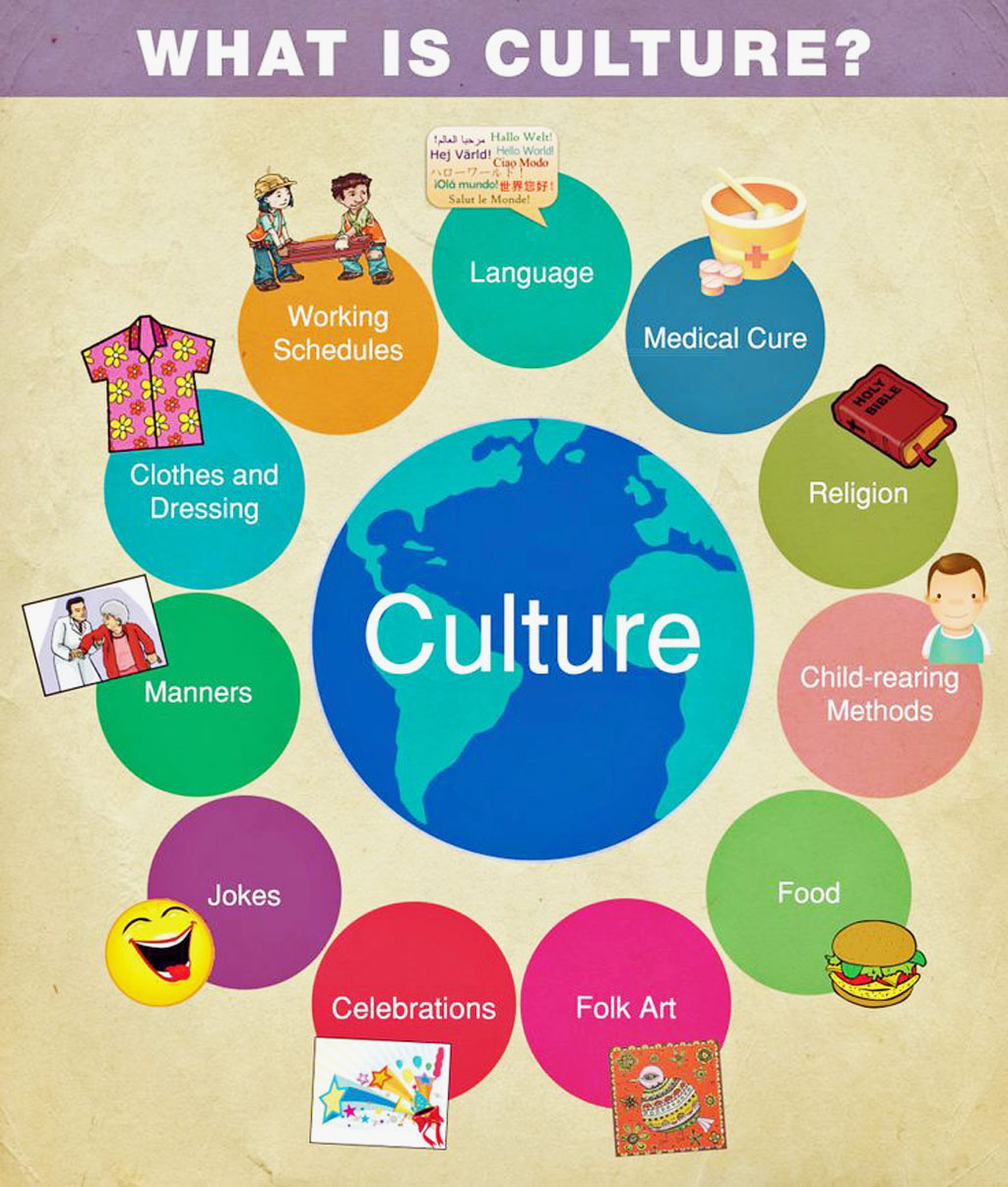Sankrit word for Culture and its meaning
Hindu Culture
The Definition of Culture
Talks by Swami Tejomayananda

We will now look at the actual Sanskrit word for “culture”, and see its meaning and deeper implication.
In Sanskrit, the word for a culture is Samskriti. Kritam means”That which is done”, sam means “very well”; samskriti means “that which is very well made, very well refined”. Therefore, even the Sanskrit language itself is that which is a well-refined, purified language.
In terms of behavior, when we speak of culture we also mean a kind of a refinement. We often say that an individual is “cultured”, his behavior is “cultured”, although he may not necessarily be an educated person.. Many times, in fact, an educated man may be a brute because being truly cultured is different from merely being formally educated. But to fully understand this concept of samskriti, we must understand two other basic points.
The first point is the concept of prakriti, which we generally translate does as “nature”. The inherent nature or tendency of a thing is called its prakriti. For example, animals have urges such as hunger, thirst, feelings of fear or insecurity, and the need for sleep, and they live according to these desires or urges. This is defined as their nature.
A human being also has the same feelings off fear, hunger, thirst, and the desire for progeny. These are natural urges. Therefore, when a person feels hunger and goes in search of food, the action is called prakriti – action in accordance with nature. There is nothing wrong in this.
As long as we are acting according to nature, that is no problem. But there is a difference between the urges of an animal and a human being. The animal’s urges and pursuits are controlled by nature; they remain within limits and never transgress nature. Therefore, the animals behavior is true to its prakriti.
For instance, when a dog has satisfied its hunger, it will not eat anymore. In the ashram where I was studying, some three or four dogs would remain around the kitchen and dining hall when the food was being served, and afterwards they would be fed. If there was more food than the dogs could eat at that time, they would each dig a hole in the earth and keep the food there until later. When they become became hungry, they would go back, dig up the food, and eat it. Also when dogs are sick, they will not eat food at all, but only different grasses – as medicine. Nature has given them this understanding.
But a human being! Whatever sickness he may have, even if his stomach is upset, the first question he would ask the doctor is, “What can I eat?” He just cannot control his eating. So the difference is that the animals that remain true to their prakriti; they do not transgress it. Even the animals desire for progeny is according to season. Everything is controlled.
In Sanskrit, there is another word, vikriti, which in this context, I will translate as “perversion”. When some urge or desire grows out of proportion and we transgress the control and limits of prakriti, it is vikriti, perversion; no longer prakriti. When I feel tired, naturally I sleep for sometime to revive myself and then again begin to work. Here, the sleep is not a problem, it is not a vikriti. But if one sleeps for 16 hours at a stretch then something is wrong; it is not natural and is therefore because vikriti. These are people who sleep tend to 10 to 12 hours and still say, “I think I got up too early this morning exclamation”!” But 12 hours of sleep is abnormal and unnatural and is called the vikriti.
In the same way, when I am hungry and want to eat, this is prakriti. However, if I continue to eat like a glutton, and in order to satisfy my taste buds I am ready to ready to do anything (kill animals, and even destroying nature to fulfill my desire), then this is perversion.
I once heard a story about a Roman Emperor who was so terribly fond of eating that he used to over eat and afterwards take medicine in order to vomit. Then he would again begin to eat! Even when we hear about such a thing we feel nauseous! This obsession of the emperor with eating is vikriti.
All living beings have natural urges, and as long as they live within their limits, it is not the perversion; it is simple prakriti. In the case of animals, their behavior is controlled by nature itself, back in the case of human beings, that is the difference.
The human being is blessed with the faculty of thinking, which allows a lot of freedom. And what is that freedom? I can either destruct or construct myself; both are possible. Thus this faculty of thinking is a blessing if we use it rightly. If we do not know how to use it properly, it can become a curse. Our prakriti, our nature, can become an obsession, an abnormality. This is why psychology books contain sections on abnormal psychology, dealing with the thought and behavioral patterns of people whose nature has taken the form of perversion.

No Comments Yet